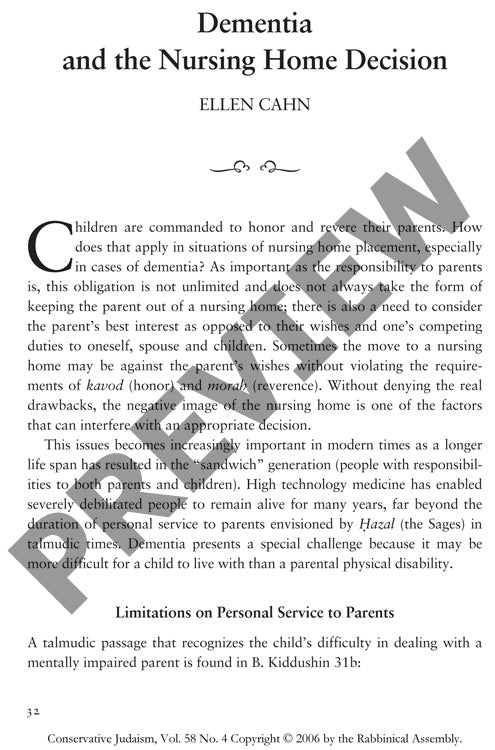Dementia and the Nursing Home Decision
Couldn't load pickup availability
The ancient Jewish obligation to personally care for aging parents faces stark challenges when confronted with the modern reality of dementia, creating profound ethical and religious tensions for families. Drawing upon Talmudic sources, Maimonides' writings, and contemporary halakhic authorities, a detailed rabbinical analysis reveals that Jewish law recognizes legitimate exceptions to home-based parental care when mental illness creates unendurable strain on caregivers. The research examines historical precedents, including the case of R. Assi and his mentally impaired mother, alongside modern clinical literature on dementia care to address the complex interplay between filial obligations of kavod (honor) and morah (reverence) and practical caregiving limitations. Several factors emerge supporting nursing home placement: caregiver exhaustion, safety concerns, behavioral problems associated with dementia, and the need to prevent potential abuse. Negative cultural perceptions of nursing homes often impede appropriate decision-making, potentially leading to inadequate care for patients and caregiver burnout. The analysis demonstrates that nursing home placement may fulfill rather than violate filial obligations when conducted with proper motivation focused on the parent's best interests, and that maintaining honor and reverence remains compatible with professional institutional care when family caregiving becomes unsustainable or potentially harmful.

More Information
-
Physical Description
-
Publication Information
Published 2006
ISBN
-
Publication Credits
Ellen Cahn

